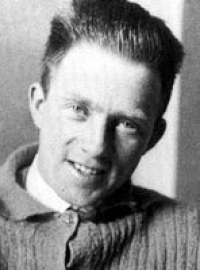Heisenberg, Werner (Physics & Chemistry)
Heisenberg, Werner
Werner Heisenberg (1901-1976), a German physicist considered among the founders of quantum mechanics, the new physics of the atomic world, and especially for his contribution of the Uncertainty Principle to quantum theory. In 1925, he challenged the atomic view of Neils Bohr, arguing that one cannot always assign to an electron a position in space at a given time, nor follow it in its orbit. Mechanical quantities, such as position, velocity, etc., should be represented, not by ordinary numbers, but by abstract mathematical structures called "matrices"; his theory was thus formulated in terms of matrix equations. In 1927, Heisenberg described his famous principle of uncertainty, which states that the determination of the position and momentum of a mobile particle necessarily contains errors, and that although these errors are negligible on the human scale, they cannot be ignored at the atomic scale. For these theories and their applications, which resulted most notably in the discovery of allotropic forms of hydrogen, Heisenberg was awarded the Nobel Prize for Physics in 1932.
Further Reading
Werner Heisenberg - Biography (Nobel Foundation)
Werner Heisenberg - Nobel Lecture (Nobel Foundation)
